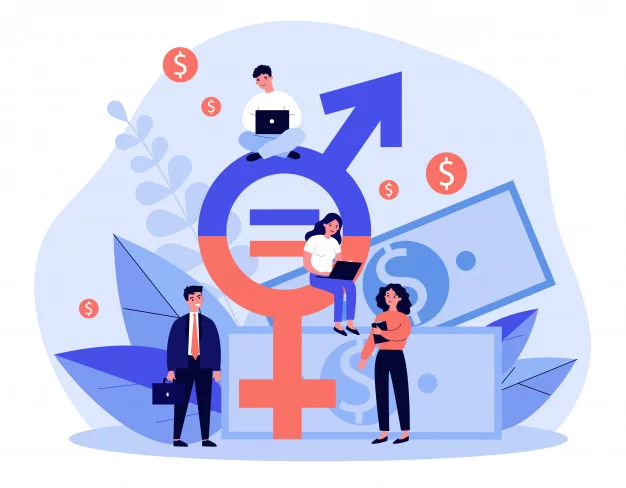You are the epitome of humbleness, integrity, and diversity.
Social Guardians are typically open to new ideas while guarding against social injustice. You strive for a balanced approach to economic growth and environmental sustainability. Generally, you are politically moderate, compassionate, and passive in expressing viewpoints.

Join 284,592 Social Guardians who registered to vote
Overview
You are a naturally social and optimistic person. You can easily remember people’s names, maintain social connections, and can achieve an intimate level of connection with almost anyone. You are typically a passive type in politics until a threat forces you to act and engage in the political process.
You believe in the good of other people, and are often surprised by the cynicalness and selfishness of others. While humble and passive, you are reliable and are known to vote when the time comes around, even if you do it quietly.
Politicians often refer to your personality type as the “silent majority.” You’re never too far to the left or right. You always vote on what’s “presently achievable” given the moral state of the country and you never let perfect get in the way of what’s good enough.
Top Values
Your top values champion social justice by promoting accountability, equal opportunity, and affordable healthcare access for all. You believe the social and economic policies should always consider the impact on the broader population and not just serve those at the top.
Political Traits
Using MPP’s trait and engagement criteria, your personality match as a Social Guardian shows moderate levels of political engagement, value assertiveness, and change appetite. You tend not to be very vocal about politics, but you do engage when you strongly believe in an issue. You welcome change, but only when it is well-reasoned and positioned for the greater good. Your gut feelings help guide your decision-making, though you welcome new information from trusted sources.
Political engagement measures the amount you actively engage in politics via socialization, reading/writing content, or actively engaging in civic affairs.
Idealism measures your outlook on the future. Those who are optimistic tend to see the good in others and have positive hope for humanity, whereas those who are pessimistic tend to be realists and darwinists.
Change appetite measures whether you would prefer things stay the same or if you want them to change (e.g reform).
Your decision-making process is measured on a scale of emotional dominant to analytical dominant reasoning. Emotional dominant reasoning means you are likely to go with your gut, whereas analytical dominant reasoning mostly relies on pure logic and facts.
Agreeableness measures how likely you are to be receptive to feedback and different opinions. People who are more close-minded tend to holdfast to their beliefs, whereas those who are open-minded tend to welcome different perspectives.
Value assertiveness measures how actively you project your values and opinions onto others. Those who are passive tend to keep to themselves, whereas those who are very assertive tend to openly advocate for their beliefs.
Your Ideal Society
Your ideal society is one where people treat each other with dignity and where the government works to build an economic system that works for everyone. In this society, everyone has equal access to healthcare that is affordable, humane, and highly effective. This effectiveness would come from strong institutional investment in science, technology, and healthcare infrastructure.
Your society would fight back against the brazen abuses of power and ensure that the law is applied equally regardless of wealth or political status. It would be a place of equal opportunity, equal rights, and equal justice for those who play by the rules.
Most of all, your ideal society is a world where politics and people are less polarized against each other. People would discuss ideas based on their merits and factual analysis, not based on emotional whims or religious traditions. Your society would reward those who treat civic discourse respectfully.

Party Alignment
Social Guardians are typically aligned with the platform, social values, and pro-science leanings of the Democratic Party.
Political Party Alignment
Party Priorities
Policy Priorities
Social healthcare refers to prioritizing affordable and accessible healthcare for all, including mental healthcare.
Environmental health prioritizes issues like global warming, environmental regulations, and clean energy.
Wealth maximization refers to prioritizing policies that maximize economic, asset, and business growth.
Immigration rights refers to prioritizing policies around immigration reform, border reform, or a path to citizenship.
Social equality prioritizes policies that tend to support minority, women, and LGBTQ rights, including freedom of expression in all forms.
Education reform prioritizes policies that support K-12 education, after-school programs, and college access/affordability.
Religious fundamentals are policy prioritizes that focus on promoting and protecting religious values.
Amicable global relations encompasses policies that promote international cooperation, migration, aid, and globalism.
Law and regulation focuses on policies that uphold social order, government oversight, and criminal justice.
Strengths
Weaknesses
Social Guardian Power-Ups
Future Fulfillment
You like to be of service to others and enjoy seeing the fruit of your labors. Not too keen on being a public figure and not a big fan of dealing with company politics, you work best when you can help support a cause or others from the sidelines.
People with your personality type are known to be the backbone of the community: working as nurses, teachers, or counselors. In these positions, you can make a genuine impact on people’s lives without having to be in the spotlight.
In politics, the best way for you to get involved is to support a community organizing event or to volunteer your time to a political campaign where you can. If you are really invested in making change, sometimes the best way to make an impact for others is to run for office yourself.


